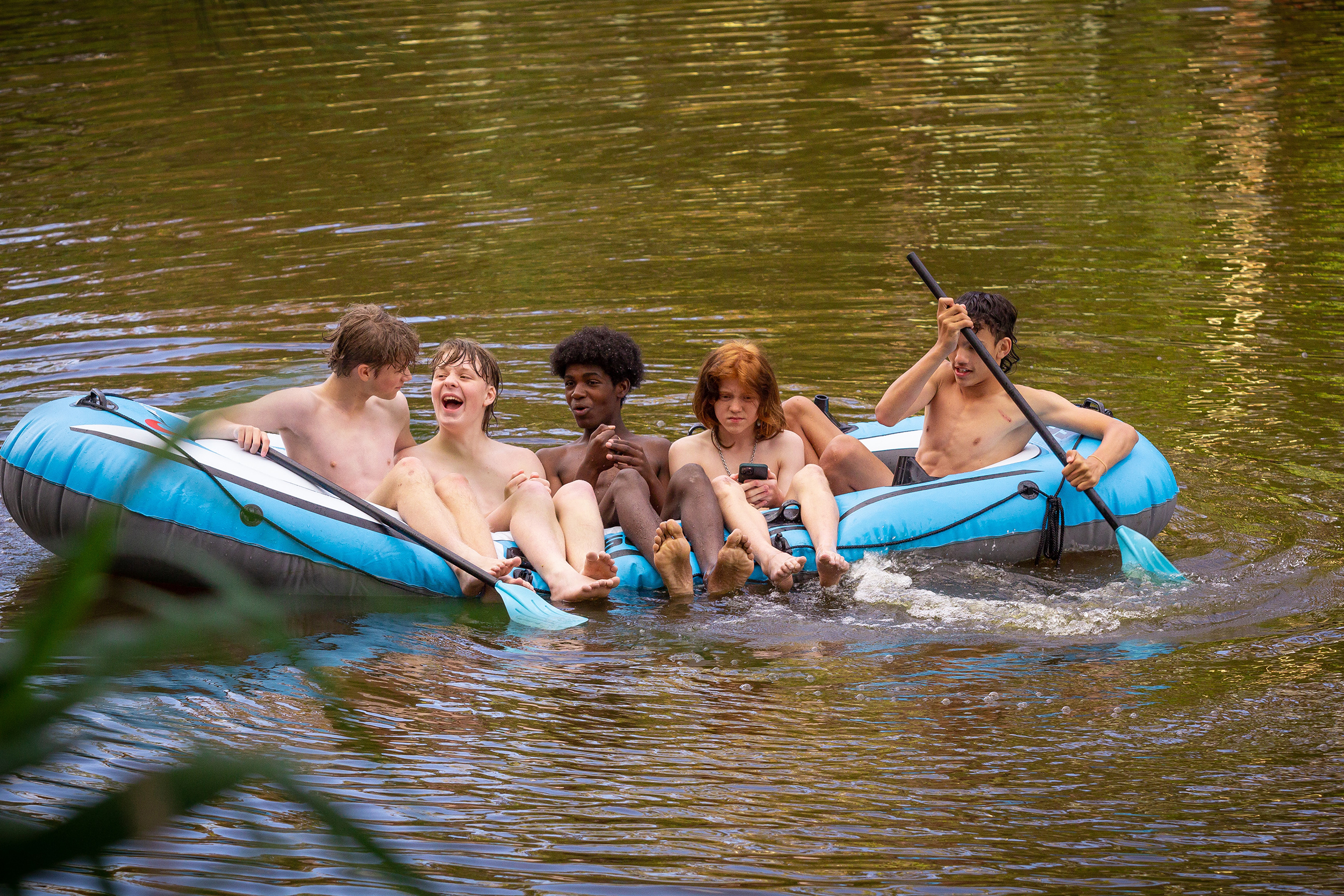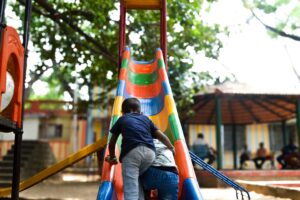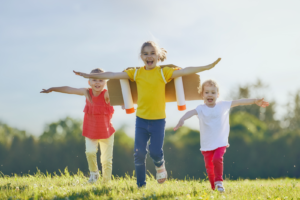
SOCIAL SKILL DEVELOPMENT & COMMUNITY
Last month we spoke about enhancing our understanding and development of safety and connection between the caregiver and a child. In the time that’s passed since our last blog, so much has happened at Explore and Soar and with our families! With school and extracurricular activities, celebrations, catch ups and holidays all occurring over the last 6 weeks, as well as the constant uncertainty of Covid, we have been forging a path towards a new normal.
I have often thought about how exhausting assimilating into a ‘normal’ social life is for me, my team and our families. We have gone from months of being stuck in our own homes, to all of a sudden being out and about all the time. It has been exciting to reconnect with our friends, family and community in ways we did pre-pandemic, yet such a change does come with a few consequences.
Notably, our children are exhausted!
They simply haven’t had this much social stimulation in a long time. They have been out on weekends and are now experiencing their first proper end of term fatigue. And let’s be honest, as parents, we too are exhausted and needing some down time.
As much as I want to discuss social skills and interaction in this month’s blog, I’d like to focus on finding the balance between socialising and creating the time for rest and integration (processing) time.
Socially, developing these skills occur at the commencement of regulation and engagement (please refer to our previous posts), but social skills are dependent on a child’s ability to process sensory information internally and externally (from the world around them). This is completed through sound (middle ear), movement (vestibular system found within the ear), and the visual system (eyes), in conjunction with other systems in the body. Additionally these organs and sensory systems are all connected through cranial (head) nerves. When we are processing information, our sensory systems alert and motivate our body to carry this information through our nerves. Our cranial nerves are located on the face and in the brain, which allows us as young children to begin understanding non-verbal social cues. There are a lot of nerves that are connected to the mouth and eyes, from our ears, which when working together, create facial expressions and we then in turn use words to express ourselves, allowing us to socially interact with others using both non-verbal and verbal communications.
If our children have challenges processing sound, visually tracking or moving their body, just their emotional regulation and social skill development can be impacted. Unfortunately children can’t always tell us what is going on inside their body with the use of words, but they can tell us with their behaviour.
So let’s take 5 minutes to reflect on how your children have been over the last month. Ask yourself these questions:
How do they look? How are they feeling? Are they regulating through their emotions? Are they coping at school? How fatigued are they? When you are communicating and connecting with your children, are they seeing your facial expressions? Are they able to read your social cues in order to pick up on what comes next?
If the answer to any of these questions is no, then please take some time to work on safety and connection with them. Support their regulation, calm their bodies and nervous systems. Pausing and giving time for their bodies to rest is optimal integration time to support gains in all development but also supports them in understanding demands socially through their sensory systems.
So many of our children are easily overwhelmed by sounds, visual input, touch and movement. When they are not able to process these inputs optimally, it can greatly impact how they socially connect with you, as parents, their siblings, and additionally how they cope in the school and community environments, when connecting with their friends.
Which brings me to socialisation in schools. Is your child having difficulties socialising with their friends at school, is it becoming more of a problem now than in previous years? And how can you help your children more?
Please reach out and chat to us if you are worried about this! Each of your clinicians will have an understanding of your child’s needs and when we are working with them, we are developing their foundational skills to further support their social skills, or additionally we are specifically working on skills that can further expand their capacity to interact with peers.
Some strategies we work towards developing are:
- Understanding their feelings.
- Understanding others feelings through body language and facial expressions, such as happy face, surprised face, frustration or sadness.
- Understanding whole body listening concepts and active listening when interacting with friends or a group of friends.
- Developing group plans, negotiating and turn taking within these activities.
- Expected, unexpected and flexible thinking when working with friends.
At home there are things you can do to further expand your children’s social skills, such as:
- Understanding which emotions your children feel or express to you. How many are there? (remember this will differ pending age and their self-regulation skills).
- Can they ask you what is wrong if your mood or facial expressions change?
- Playing silly faces, can they guess emotions from facial expressions, such as sad, excited, surprised?
- Play a game together that you all contribute to, each having an idea and adding everyone’s ideas together, to form a group plan and play as a family.
- Play boardgames that are chance related to expand on regulating through waiting their turn, winning and losing, as well as supporting each other as a whole family.
As we are socially interacting with others in the community, school and different events, in order to further support your child’s tolerance in busy environments or supporting their reintegration into the community, you need to take notice of fatigue. Please consider different strategies that can support you and your children re-entering into the social world such as:
- Reducing sounds, visual input and high energy movement to help them process the world around them.
- Provide some visuals and plan for the day to support their understanding of routine and expectations.
- When the days are not as busy, take your time or allow for transition times between activities.
- Provide moments of deep pressure hugs, fetal positioning, ice chips, inversion activities, respiration or squishes to support their regulation and calming of the sensory system for increased engagement and interaction with peers.
- Reduce time spent in the community or at events to support a transition back into the community and increase tolerance of high sensory inputs over an extended period of time.
Allowing and providing our children with the best support in order to allow their sensory systems to engage socially and be present with others is paramount. It is vital in the current environment due to the reduction in time spent socialising during the last 24 months. Be kind to yourselves and to your kids, you have permission to take it slow. You do not need to say yes to everything! Think about what is best for you and your family, and focus on that!
We hope to continue seeing all of you venturing out into the communities, reconnecting with friends and expanding upon our children’s social skills. If you think we can further help you with these skills and expand on our support offerings, please don’t hesitate to contact me or your treating clinician.
Until next time,
Jess
ORIGINALLY PUBLISHED APRIL 13, 2022
Latest Posts
- Emotional Regulation – Community for Wellbeing

- Thriving Together: Building Your Parenting Community and Networks

- Welcome to 2025: A Year of Community and Wellbeing!

- Embracing Transitions and Growth: A Year of Learning and Achievement

- The Power of Play: Supporting Transitions in Your Child’s Development


Leave a Reply